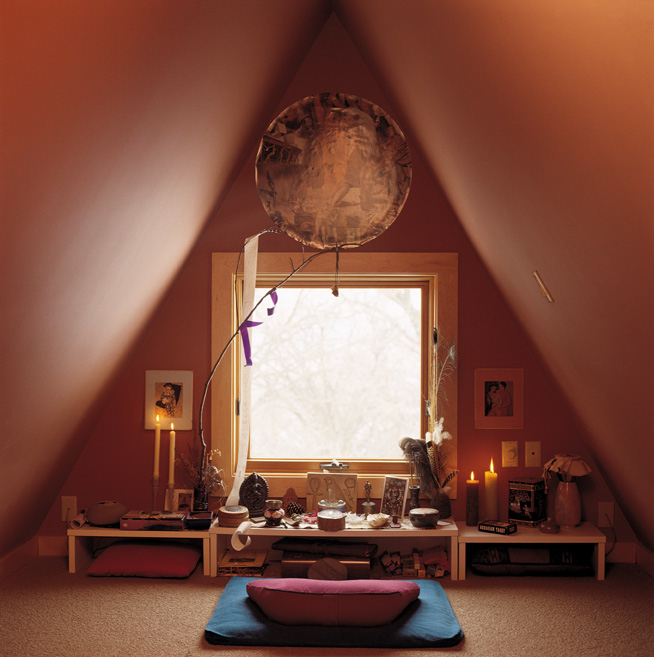On Wabi-Sabi Weekends, I post excerpts from my book, Simply Imperfect: Revisiting the Wabi-Sabi House.

Best-selling author and architect Sarah Susanka spent a lot of time gathering inspiration and finding quiet in her attic meditation space before she launched the Not So Big House movement.
“I would like you, even in this busy age and even though your house may be small, to set aside a space (although it may seem a wasteful use of space) to serve as a place where you can reflect upon yourself.”—Sen Soshitsu XV
If you’re lucky, you can find a space in the attic or have a small spare bedroom that you could dedicate to solitude and meditation. If you live in tight quarters, designate a quiet corner in your bedroom or even living room as your meditation space. Unroll a rug or a mat when you want to meditate, concentrating on creating a sacred space and changing the room’s atmosphere. Hang a piece of art that represents peace and spiritual abundance to you. Keep a small table in this corner for your incense, candles and other meditation tools. (If your “space” is in a public spot and you don’t want everyone to see these things, find a table with a drawer or store them in a pretty box on the table.)
You can keep your meditation space spare and lean or surround yourself with tools and inspiration. Meditating is more comfortable on a cushion or in a straight-back seat. You also might want to bring in candles, an incense burner, a photo or statue of someone who inspires you, meditation or poetry books, a plant or seasonal flowers, a picture of yourself in a relaxed, joyful state, bells or singing bowls or a stone or branch from one of your favorite natural hangouts.
Buddhist altars generally include the five offerings to the deities: incense, flowers, water, sandalwood powder, and fruit or cooked rice. You can follow this tradition or create your own offerings. CDs or iPod downloads that ring chimes at the beginning and end of a designated meditation time can really help if you’re a clock watcher.